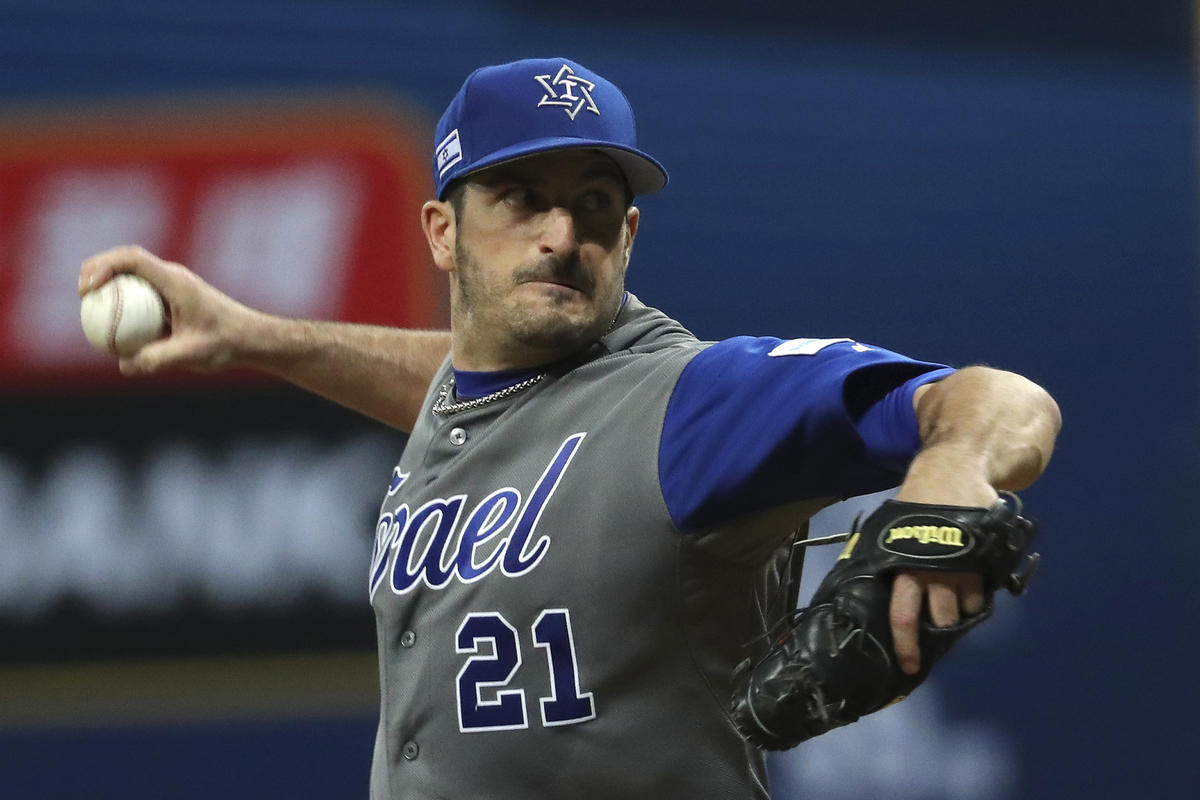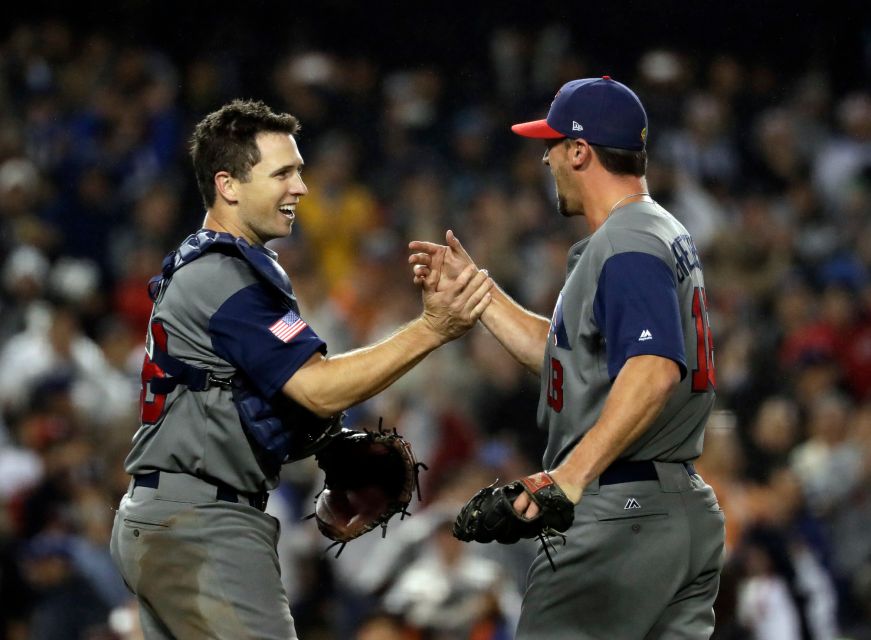
The World Baseball Classic did not necessarily need Team USA to win the championship to guarantee future success, but let’s face it: The players’ perspective has certainly changed.
“I remember in ’06, my rookie year, this thing was kind of laughable,’’ USA reliever Pat Neshek of the Philadelphia Phillies said. “It was like, “What is this garbage? Then you had the one in ’09, it was OK. And then the last one in ’13, you think, this is kind of serious.
“Now, after what we’ve done, the way everybody is buzzing about it on Twitter, and all of the attention it’s getting, you’re going to see everybody in the league want to play in the next one.
“Everyone’s going to want to be part of this.’’
Team USA’s 8-0 victory over Puerto Rico in Wednesday night’s title game marked the first time in four tries the country that invented baseball was able to win the sport’s preeminent international tournament.

How much that enhances the event’s stature remains unknown, but the early signs can’t be ignored.
Players not only are volunteering their services for the WBC that likely will be played in 2021, but already kicking themselves for rejecting the opportunity to play in this one. While they were bored out of their minds playing meaningless exhibitions in front of small crowds from Dunedin, Fla., to Goodyear, Ariz., Team USA was playing in front of sellout crowds in Miami, and 51,000 fans in the title game at Dodger Stadium.
“Even in the first round, your phone starts to buzz a little bit,’’ said Tony Clark, executive director of the players union, “where guys start to second-guess whether or not they should have or could have participated.
“It’s just different. Yes, you’re preparing for your season and you have visions of grandeur to be that last team standing, but the opportunity to wear your country across your chest is something, particularly if you haven’t experienced it before.
“When you see it, they get very excited very quickly about the opportunity perhaps the next time the lights come on.’’
There was so much noise before the WBC about who rejected invitations to play for the United States, it was a slight to those who did make the commitment.
Really, did it matter that Clayton Kershaw wasn’t pitching Wednesday at Dodger Stadium? He might have drawn louder cheers, but he wasn’t going to out-pitch Marcus Stroman, who didn’t give up a hit until the seventh inning.
Did it make a difference that Mike Trout and Bryce Harper stayed in their spring-training camps? They would have provided the Madison Avenue star power, but they wouldn’t have appreciably exceeded the production of Brandon Crawford, Eric Hosmer or Christian Yelich.
“I’ve had players already tell me this is the greatest experience of their life,” Jim Leyland said after the final game of his brilliant managerial career. “We had players that wanted to be here, and that’s the players you want.’’

Sure, there’s plenty of room to tweak the tournament. Two officials told USA TODAY Sports that they strongly are considering moving the WBC a week later in their next go-around, giving pitchers more time to be ready.
Certainly, it could help alleviate the constant interference from teams throughout the tournament, with Leyland talking to three on the morning of the championship game. The Dodgers prevented closer Kenley Jansen from going out for a second inning after throwing nine pitches in a semifinal game for the Netherlands, while others like the Seattle Mariners granted permission to closer Edwin Diaz, who threw two innings in the semifinals, to pitch again for Puerto Rico in the championship game.
It would avoid the awkwardness and discomfort the Tampa Bay Rays helped create for ace Chris Archer. He pitched on the opening night for USA, but left after just 41 pitches, frustrating Leyland and the USA staff. He was supposed to pitch in the second round, but since USA’s schedule did not align the same day the Rays wanted Archer to pitch, he was back in Port Charlotte, Fla., while his teammates were winning the second round in San Diego. And when he volunteered to join the team for the championship round, USA officials told him to stay home.
While MLB Network was thrilled with TV ratings, drawing a viewing audience that’s 20 years younger, too many fans didn’t get to watch the games. If they don’t subscribe to the network, or couldn’t stay up until nearly 2 in the morning back East, they weren’t tuning in.
The championship round needs to be played somewhere in the Eastern time zone; you can’t start games at 10 p.m. back East, and expect fans to watch.
Let’s face it, the greatest and most emotional games of the tournament in USA’s bracket were in Miami. They not only drew huge crowds, but brought unbridled passion that’s lost in the regular season.
“The energy that was in the ballpark for those games,’’ said USA second baseman Ian Kinsler, “was beyond my expectations. It was crazy. I loved it.’’
The tournament will return in four years, Commissioner Rob Manfred vowed, and they’re open to changes that will make it even better.
The hottest idea among several players, such as San Francisco Giants catcher Buster Posey, is to shut down the sport for two weeks every four years to play in the WBC, just as the NHL did for the Olympics. It probably won’t fly among the owners, and many players would prefer a two-week vacation than playing even more games in a long season.
“I don’t think baseball would shut it down that long, but the timing would be good,’’ Kinsler said. “The only trouble with starting it the way we do now is the starting pitching. The starting pitchers feel like they don’t want to participate in this because they’re not ready.
“So whatever way to get them more comfortable, to get everyone to participate, would be great.’’
Yet, no matter the timing, or what tweaks will be made in the future, the WBC will never again the same.
“Hopefully, we made a difference,’’ Posey said. “I know it’s something we’ll never forget.’’
This article was republished with permission from the original publisher, USA Today. Follow Bob Nightengale on Twitter and Facebook.